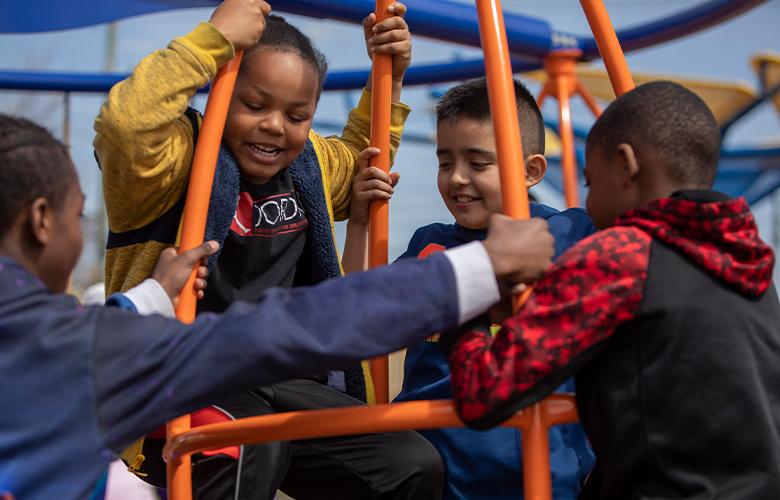
Many years ago, I remember the frustration of seeking afterschool care for my son as he entered public kindergarten. School ended two hours earlier than the child care program he previously attended. It was almost impossible for any of the adults in his life to retrieve him and provide appropriate care during this time frame due to work-related responsibilities. Hence, transportation was the major factor in choosing a program.
I also cared deeply about finding a program that would meet his personal needs—developmental, academic, social, emotional, and, most important to me, cultural. The programming and overall approach I was after would reflect the needs of my Black child. While I was able to secure a great program that met all of his needs, this is not the case for many families today in Black communities.
A recent household survey commissioned by the Afterschool Alliance, known as America After 3 PM, reveals that Black parents are pleased with afterschool programs, but obstacles including cost, access, and transportation prevent greater participation. According to this study, the number of Black children in afterschool programs has dropped from 2.4 million in 2014 to just 1.5 million in 2020. This decline means an increased number of Black students lack the essential supports that can help them succeed.
As a researcher who knows the evidence regarding the benefits of out-of-school time (OST) programs, and as a parent who knows the crucial role OST programs played for my son, this data simply distresses me. Black families, especially those in low-income communities, need access to supportive services that provide safe, healthy environments for their school-age children when there are gaps in supervision. Afterschool and summer are prime times when families need these supports. It is imperative that municipal, state, and federal policymakers understand this need and make increased investments to ensure OST programs are accessible to those who will benefit the most.
The National Afterschool Association, the Afterschool Alliance, and the National Summer Learning Association can provide information on the benefits of OST programs. Is the OST availability equitable in your community? I would urge you to advocate on behalf of the children and families in need.
| Katari Coleman co-leads the National Center on Afterschool and Summer Enrichment (NCASE), a resource and training hub that builds capacity to ensure children can access high-quality afterschool learning that supports their development and boosts their academic achievement. |

Add new comment